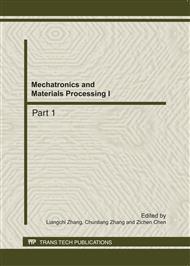p.933
p.939
p.943
p.948
p.953
p.957
p.961
p.966
p.970
Empirical Analysis of Performance of Public Organizations Based on DEA Model
Abstract:
Performance evaluation of public organizations is a problem we are facing at home and abroad. Objective and overall quantitative evaluation should be based on the interdisciplinary knowledge system basis, therefore, this article depends on public management theory, management science and engineering theory, statistics and so on, drawing Quantitative assessment experience from abroad, following the logic of evolution of quantitative assessment, based on combining theory with practice, empirical analysis and normative analysis, induction and education ,qualitative and quantitative analysis, to research the intrinsic logic of organization performance and explore the new system of quantitative evaluation . The paper first elaborates and explains quantitative analysis of organization performance, then, based on value orientation of public organizations and data envelopment analysis (DEA model), construct index system of government performance .On this basis, the paper mainly gives some more objective evaluation from the relationship between DEA effectiveness and government performance of some cities in Shandong province.
Info:
Periodical:
Pages:
953-956
Citation:
Online since:
September 2011
Authors:
Price:
Сopyright:
© 2011 Trans Tech Publications Ltd. All Rights Reserved
Share:
Citation:


